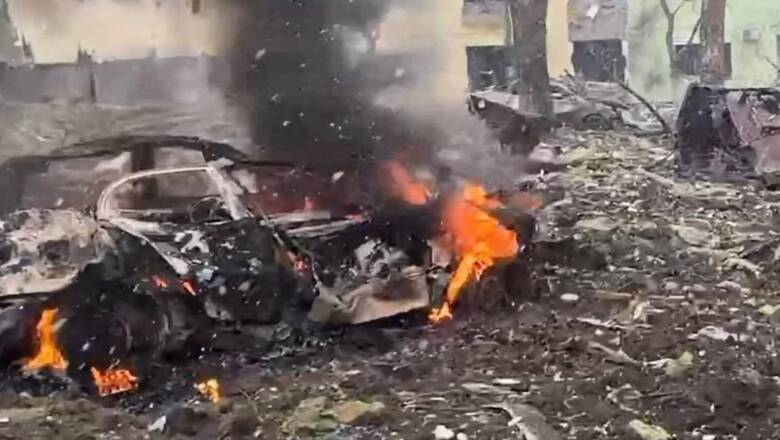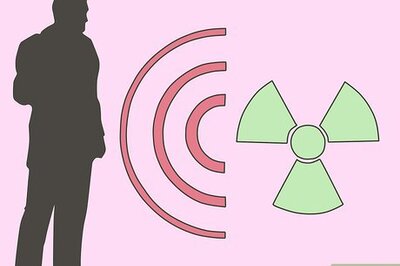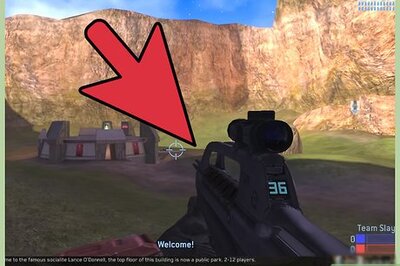
views
It is spring time, but not for Europe. And it is not the weather that has created a frost over it, but the fog of war as Russia pounds Ukraine. An east European country, Ukraine, is the second largest by size in Europe. A country that was developing at a steady pace since its independence in 1991. It was part of the erstwhile Soviet Union before it emerged as a sovereign nation when the USSR imploded.
However, as Ukraine remains engulfed in a war with Russia, concern has fast spread across Europe about what President Putin can possibly do next. In the regions in Poland that border Ukraine, the fear has been palpable for the past two weeks. Ask any resident in Rzeszow, that lies across Lviv in Ukraine, and you will probably get a similar answer – “We are scared.”
When I asked a school teacher in Rzeszow, Edyta, where this fear was emerging from, she had a clear response, “Putin is unpredictable.” She added, “What can I say, we are all afraid.” The fear is of the war becoming bigger and engulfing Europe, but more precisely the fear of Putin now setting his eyes on other East European countries is more real than ever.
Poland is as big in size as Germany, with the World Bank categorising it as a high-income economy. It is also a North Atlantic Treaty Organization (NATO) and European Union (UU) member, unlike Ukraine, and yet there is a worry about the conflict crossing the border into Poland. The worry is not limited to areas bordering Ukraine alone. Move to the capital Warsaw and you end up hearing similar views.
Patryk Kugiel, a foreign policy expert at the Polish Institute of International Affairs, reaffirmed this concern. He said, “Take my wife for example. She asks me every day, what’s going to happen?”
ENERGY NEEDS
The concern stretches beyond an immediate repercussion. Europe as a whole is becoming increasingly wary of its reliance on Russian gas and oil. In fact, Patryk Kugiel believes that had Europe not been so dependent on Russia for its energy needs, it may have been better placed to react to the Ukraine crisis.
European leaders who met at the Versailles Summit this week decided it was time to think of alternatives. EU President Ursula van der Leyen said that by May-end, the EU will come out with a roadmap to cut its dependence on Russian energy by 2027. She has been stressing on the need for alternatives.
Interestingly, the alternatives that are being taken up by Eastern Europe are largely being sold using the Russian angle. A Costa Rican solar energy company, Yuxta, has just managed to break through in Hungary. Their winning proposition wasn’t green and clean energy, but freedom from Russian dependence – a pitch that did the trick.
Entrepreneur Ernesto Moreno, who works with Yuxta, was in Poland and then headed to Hungary as part of his work. He said, “In Eastern Europe, the real punchline is energy independence. You may show them economic and environmental costs, but when you say you will be free of Russian dependence in terms of energy, that’s when they sign and proceed with the project.”
But will this pace of investment in alternatives be good enough? Germany has been investing consistently in solar energy for the past two decades. But the energy needs are such that it was keen to operationalise Nord Stream 2, despite US resistance till the Ukraine war broke out.
Nord Stream 2 is a 770-mile-long undersea gas pipeline running directly from Russia to Germany, bypassing Ukraine. This meant that the intermediary transit costs would have been cut, making much cheaper gas available to Germany. This would have helped heat about 26 million German homes at affordable costs, something that was vital for the working class Germany.
However, Germany took the hard step of halting the review process by the regulator for the NS 2 pipeline after Russia invaded Ukraine. German Chancellor Olaf Scholz said, “That sounds technical, but it is the necessary administrative step, so there can be no certification of the pipeline and without this certification, Nord Stream 2 cannot begin operating.”
Ursula von der Leyen added the pipeline has to be assessed in light of the security of energy supply for the whole of Europe. “We are still too dependent on Russian gas. We have to strategically diversify our suppliers and massively invest in renewables.”
INDIA’S STANCE
Faced with an array of issues arising out of the Russia-Ukraine war, Europe is not taking kindly to the fact that some countries are maintaining a distance from the crisis. For instance, India. When India abstained from voting in the first of the discussions on Ukraine on January 31, the UK took up that matter with India. News18 learnt that although the UK understood India’s predicament over Russia, it conveyed to New Delhi that its abstention wasn’t viewed as a neutral vote.
A senior European diplomat, who didn’t wish to be named, said, that the issue is about respecting international laws and honouring sovereignty and territorial integrity, and he believed even India should be on board with the West.
Experts like Kugiel firmly espouse that India take sides, even though he added that he realised where India’s position stems from. He said there was still room for New Delhi to more openly “voice” its opinion on the Russian “aggression” against Ukraine. He also warned that the turn of events could mean that Europe may look at a more transactional relationship with India rather than it being based on shared values and principles.
India has been under similar, although seemingly less, pressure from the US. On the face of it, responses from Pentagon and the US state department on India’s stand on Ukraine seem to depict greater understanding of India’s predicament, however, the Biden administration has been drawing parallels between the Russian move and what China is capable of doing in the Indo-Pacific. The US secretary of state, Antony Blinken, raised the matter in Melbourne just before the invasion started at the Quad Ministerial meeting in February. This has been followed by a Quad leaders’ virtual meeting that was arranged last week as the Russian onslaught continued.
The statement from US President Joe Biden’s office stated that the meeting was to discuss the Ukraine crisis. The joint statement said, “The Quad leaders discussed the ongoing conflict and humanitarian crisis in Ukraine and assessed its broader implications.” The virtual meeting was facilitated, even as leaders had already decided to meet in person in Japan in the first half of the year. The hurriedly called meeting itself indicated the need felt by the US and allies that sanctioned Russia – which is three of the four Quad members – to access India’s position again, as it continued to be in the midst of trying to evacuate all its citizens from Ukraine.
The Ukraine crisis is like none other in the recent past. With two big powers, the US and Russia being the protagonists and Europe the stage where the sequence is being played out, India’s decision of sitting out is also fraught with geopolitical danger. However, in a crisis, a medium of communication – one that is on good terms with the two warring sides – is also of much value, provided India decides to don that mantle.
Read all the Latest News India and Breaking News here



















Comments
0 comment